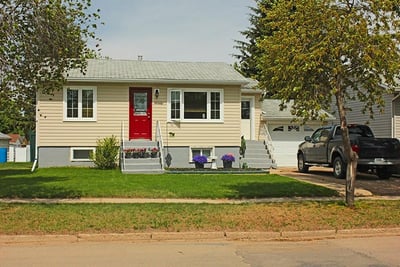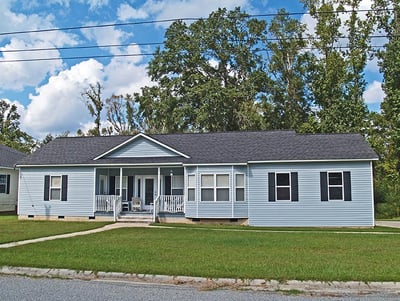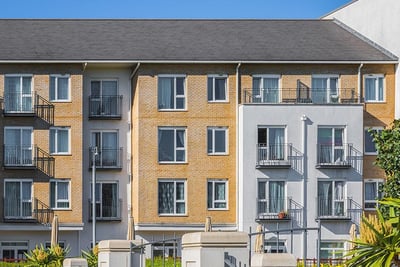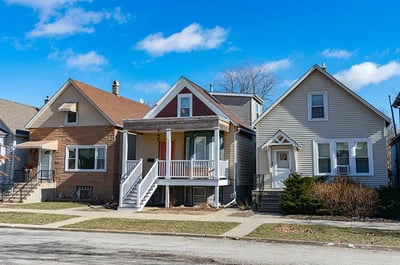Page 10 91 - 100 of 144
What Is the 20% Related Party Rule for Opportunity Zone Owners?

The 2017 Tax Cuts and Jobs Act is known for creating the Qualified Opportunity Zone (QOZ) program, which encourages real estate investors to invest in low-income communities with the intention to stimulate economic development and job growth. Under certain conditions, these private investments may be eligible for capital gains tax incentives. By investing realized gains in QOZs, investors can reduce capital gains tax liability or eliminate it altogether from future value appreciation on QOZ investments.
What Are the Holding Requirements for Opportunity Zone Investments?

As part of the 2017 Tax Cuts and Jobs Act (TCJA), an Opportunity Zone is a designation and an investment program that allows for certain investments in lower-income areas to have tax advantages. There are over 8,700 designated Qualified Opportunity Zones (QOZ) in all 50 states, the District of Columbia, and five U.S. territories. The goal of the program was to create jobs and stimulate economic development by incentivizing investors to reinvest capital gains in real estate property or businesses located in economically-distressed communities.
Opportunity Zone Regulations - What You Need to Know

In November 2020, we offered an overview of the IRS’ Notice 2020-39. That information explained coronavirus pandemic-driven “resets” when it came to Qualified Opportunity Zone (QOZ) deadlines. For example, the 180-day reinvestment deadline clock struck “midnight” on December 31, 2020 for reinvesting recognized capital gains occurring between April 1, 2020 and December 31, 2020 into in a Qualified Opportunity Fund.
How Does Realized Work With Qualified Opportunity Zones?

As we’ve pointed out in previous blogs, the Opportunity Zone program is still very new. And, as we’ve also pointed out, the best way to find an experienced, reputable Qualified Opportunity Fund (QOF) manager/sponsor, is to examine the previous track record.
Are Apartments Eligible For Qualified Opportunity Zones?

The IRS defines a Qualified Opportunity Zone (QOZ) as “an economically-distressed community where new investments, under certain conditions, may be eligible for preferential tax treatment.” Since its implementation as part of the Tax Cuts and Jobs Act of 2017, many of those “new investments” in the federally designated Opportunity Zones consist of real estate renovation or development.
Can I Use 401(k) Unrealized Gain Loss to Invest in Opportunity Zones?

The Opportunity Zone program is remarkably straightforward. Passed under the Tax Cuts and Jobs Act of 2017, the initiative encourages you, the investor, to place capital gains into a Qualified Opportunity Fund (QOF). The fund, in turn, invests in federally designated, low-income Qualified Opportunity Zones (QOZs). In the meantime, you can defer paying taxes on those capital gains until Dec. 31, 2026.
Opportunity Zones: Ordinary Income Versus Capital Gains

When the Economic Innovation Group, a bi-partisan, public-policy organization, introduced the concept of Opportunity Zones several years ago, the idea was to make use of the “trillions of dollars in unrealized capital gains in stocks and mutual funds . . .” So, when the Opportunity Zone program was made official as part of the Tax Cuts and Jobs Act of 2017, investors had a way of investing their capital gains into Qualified Opportunity Funds (QOFs), in an effort to help economic development in federally designated Qualified Opportunity Zones.
Government Accountability Office Weighs in on Qualified Opportunity Zones

Oversight and reporting concerns have been part of the Opportunity Zones program since it came into effect as part of the Tax Cuts and Jobs Act of 2017. The Brookings Institution’s 2018 report, “Learning from Opportunity Zones: How to Improve Place-Based Policies” decried the lack of “necessary data and defining criteria” when it came to targeting distressed communities under the program. In late 2019, Sen. Ron Wyden (D-OR) sponsored S.2787, the “Opportunity Zone Reporting and Reform Act.” The legislation focuses on Qualified Opportunity Fund (QOF) requirements, as well as modifications to the Qualified Opportunity Zones (QOZs). The bill was referred to the Senate finance committee, where it remains.
Do Opportunity Zone Credits Impact Regular Stock Gains?

Much of the discussion concerning Qualified Opportunity Zones (QOZs) investments seems to involve real estate sales. Capital gains from those dispositions can be put toward a Qualified Opportunity Fund (QOF), which then reinvests those monies into a federally designated Opportunity Zone.
Are Mortgage Investments A Valid Opportunity Zone Property?

Just about anyone familiar with the Qualified Opportunity Zone (QOZ) program understands the basics of how it operates. The initiative, part of the Tax Cuts and Jobs Act of 2017, led to the designation of approximately 8,700 federally designated lower-income census tracts -- opportunity zones. In order to stimulate economic development in these zones, investors funnel their capital gains into Qualified Opportunity Funds (QOFs).
Page 10 91 - 100 of 144


